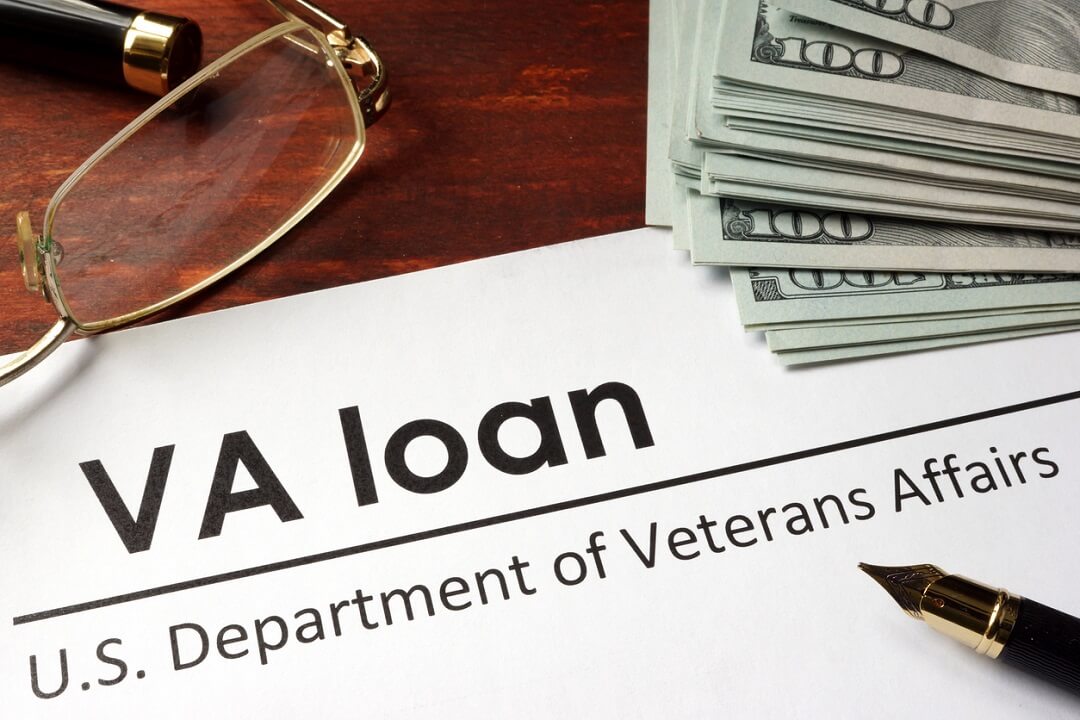Deciding between a VA vs. a conventional loan can feel like navigating through a maze. A lot of homebuyers are puzzled by the same question. The choice is crucial as it determines your financial commitment for years to come.
The struggle with choosing between a VA and a conventional loan is real. Lots of stories from countless borrowers who regretted their decision because they didn’t fully understand the differences. They ended up locked into unfavorable terms or missed out on benefits they could have enjoyed.
This fear of making an uninformed decision can paralyze you. But here’s the truth: you no longer have to be stuck in this confusion.
Key takeaways
- VA and conventional loans are popular financing options for homebuyers.
- VA loans are designed for active service members, veterans, and eligible surviving spouses, offering benefits like no down payment and lower interest rates.
- Conventional loans adhere to guidelines set by organizations like Fannie Mae or Freddie Mac and usually require a 20% down payment or private mortgage insurance (PMI).
- VA loans have no loan limits and lower interest rates, while conventional loans have stricter credit scores and debt-to-income ratio requirements.
- The choice between VA and conventional loans depends on factors such as eligibility, interest rates, upfront costs, and individual preferences.
VA vs. Conventional Loans: Overview
Securing your dream home is often paved with various financing options. Two popular choices are VA loans, supported by the Department of Veterans Affairs, and conventional loans that comply with Fannie Mae’s or Freddie Mac’s standards.
A unique aspect of VA loans is their design for active service members, veterans, and eligible surviving spouses. These loan types offer many benefits, including no down payment requirement in most scenarios and lower interest rates compared to conventional mortgages. A noteworthy feature of these mortgage plans includes personalized lender matches based on the borrower’s ZIP code.
Conventional loans, conversely, aren’t government-insured but adhere strictly to guidelines put forth by organizations like Fannie Mae or Freddie Mac. Borrowers opting for this type usually need a 20% down payment. However, they can choose less upfront money at the cost of private mortgage insurance (PMI). Unlike VA lenders who tailor matches according to location specifics like ZIP codes, providers offering these services have more generalized lending approaches.
Deciding which option suits you best involves careful consideration of factors such as eligibility requirements and available capital if required under certain conditions. These home financing methods provide distinct advantages depending upon individual circumstances, thus making them uniquely beneficial.

Understanding VA Loans
VA loans present numerous advantages that make them an attractive choice for qualified borrowers. These loans do not require private mortgage insurance (PMI) or down payments.
VA Funding Fee
The unique aspect of VA financing is its funding fee. This one-time payment offset costs to taxpayers when a borrower defaults on their loan and varies based on factors like previous use of your VA loan benefits.
You can roll this fee into your total loan amount instead of paying it upfront at closing. However, certain veterans, such as those receiving disability compensation from Veterans Affairs, are exempted from this requirement.
No loan limits and lower interest rates
In contrast with conventional mortgages, VA loans don’t have set limits on how much you can borrow. This means qualifying borrowers could potentially finance 100% of home purchases without worrying about hitting maximum lending caps set by entities like Fannie Mae or Freddie Mac.
Apart from offering unrestricted borrowing amounts, another appealing feature is lower interest rates compared with other types of mortgages. The reduced rates can lead to a lower monthly mortgage payment, making VA loans attractive for those who meet the requirements.

Understanding conventional loans
Conventional loans are often linked with Fannie Mae. Potential borrowers need to be aware of the particular regulations associated with conventional loans.
The credit score requirement is a big one for conventional financing. Unlike VA loans which can be more forgiving on the lower end of scores, these types require you to have your ducks in a row when it comes to credit health.
Lenders offering conventional mortgages also scrutinize your debt-to-income ratio under the microscope. This figure gives them an idea of how much risk they’re taking by lending money to you.

The Role of Private Mortgage Insurance
If your down payment doesn’t hit 20% or higher, you need private mortgage insurance (PMI) – a safety net for lenders.
This additional cost is costly too. It could significantly inflate your monthly mortgage payments until you’ve built up enough equity – at least 20% worth – through repayments and appreciation.
Conventional loan limits
In case anyone thinks there’s no cap on borrowing amounts with this type of loan program – think again. Federal agencies like Fannie Mae layout maximum limits each year based on average housing prices across our nation’s landscape, courtesy of the Federal Housing Finance Agency.
Unlike unlimited total loan amount options offered by VA lenders under certain conditions, conventional loans draw lines around how high borrowers can reach.

Property eligibility
The type of property you’re looking to finance plays a crucial role in determining whether VA or conventional loans are the best fit. The eligibility requirements differ substantially between these two loan types.
VA loans cater specifically to primary residences, such as houses and condos, that comply with specific VA standards. A key aspect is that properties financed through VA must be the borrower’s main residence.
Conventional Loans
In contrast, conventional mortgages offer more flexibility. While they also cover primary residences like their VA counterparts, they also extend their scope to secondary homes and investment properties.
This versatility makes them popular among borrowers who wish to invest in vacation homes or rental properties. However, lenders may have individual criteria regarding these kinds of real estate investments, so potential borrowers should consult with lenders about specific guidelines before making any decisions.
Flexibility advantage in conventional mortgages
The adaptability provided by conventional mortgages can be advantageous for certain buyers. For instance, if you plan on buying an additional home – perhaps a holiday house or an income-generating property – this loan might align better than a VA loan.
However, bear in mind that while both mortgage programs target different needs, each aims at assisting prospective homeowners to achieve their dream housing goals effectively and affordably.

Origination fees & closing costs
It’s important to understand not just your monthly mortgage payment but also additional costs like origination fees and closing costs. These can significantly influence your overall financial commitment.
Origination fees
An origination fee is a charge that lenders impose for processing new loan applications. Lenders often apply a fee assessed as a proportion of the loan amount when initiating new loans. Both VA and conventional loans might include this cost, yet they have crucial differences.
For instance, with VA Loans, these fees have an upper limit set by Veterans Affairs regulations which help keep borrowing expenses manageable for our modern-day heroes.
Closing costs
Closing costs encompass various charges related to finalizing your home purchase, such as appraisal fees or title insurance. The type of financing you choose, be it VA or conventional, affects how much you pay in closing costs.
If we delve into traditional mortgages or what’s commonly known as Fannie Mae guidelines, one finds that both types involve closing costs. However, certain expenses associated with VA financing are capped, unlike their counterparts under conventional lending terms. This means VA borrowers could save more at close compared to those opting for standard financing options.
Comparison Table: VA vs. Conventional Loans
| Aspect | VA Loan | Conventional Loan |
|---|---|---|
| Eligibility | For active service members, veterans, and eligible surviving spouses | No specific eligibility based on military service |
| Down Payment | Typically no down payment is required | Usually requires a 20% down payment or PMI |
| Interest Rates | Generally lower interest rates | Rates may be higher compared to VA loans |
| Private Mortgage Insurance (PMI) | Not required | Required if the down payment is less than 20% |
| Loan Limits | Loan Limits No set limits on the borrowing amount | Loan amount may be capped by Fannie Mae or Freddie Mac |
| Property Eligibility | Must be the borrower’s primary residence | Can finance primary residences, second homes, and investment properties |
| Upfront Costs & Fees | May have funding fee (unless exempted) | May have origination fees and closing costs |
| Credit Score Requirement | More lenient credit score criteria | Stricter credit score requirements |
| Flexibility | Limited to primary residences | More flexible, including second homes and investments |
Choosing between VA and conventional loans
The decision to opt for a VA loan or a conventional mortgage can be quite complex. Both types of loans come with unique benefits, prerequisites, and costs that need careful consideration.
If you’re eligible for the Veterans Affairs program, it’s worth considering the VA financing. The absence of private mortgage insurance (PMI), lower interest rates compared to conventional loans, and no requirement for down payments make these an attractive choice.
Evaluating interest rates & monthly payments
A crucial factor in your decision should be the potential differences in interest rates between these two types of mortgages. Typically, VA lenders offer lower interest rates than their counterparts dealing with conventional ones, which could lead to substantial savings over time.
This decrease in rate also results in smaller monthly payments, making homeownership more affordable monthly under this loan program. Using online calculators available across various platforms is always beneficial while comparing estimated monthly outflows under both options.
Weighing upfront costs & fees
In terms of upfront expenses, there are disparities between the two programs. While borrowers opting for Fannie Mae-guided conventional mortgages may have hefty down payment requirements depending upon credit score or debt-to-income ratio parameters, those choosing the VA route enjoy zero-down-payment benefits, capped origination fees, and closing costs as per Veterans Affairs guidelines.
However, note that despite not having any PMI attached, unlike its counterpart, VA does come bundled up with mandatory funding fees unless exempted due to service-related disability status. This fee varies based on factors like previous usage, etc., but adds towards the total cost of borrowing through this avenue, thus requiring thoughtful deliberation before finalizing your option.

Frequently asked questions
How does a VA loan differ from a conventional one?
A VA loan offers lower interest rates, no down payment or PMI requirements, and more flexible credit guidelines than a conventional mortgage.
What is the advantage of a VA loan over a conventional loan?
The advantages of VA loans include no down payment requirement, typically lower interest rates, absence of private mortgage insurance (PMI), and more lenient credit score criteria.
Why do sellers prefer conventional over VA?
Sellers may prefer conventional loans due to perceived less stringent appraisal standards and faster closing times. However, this preference varies among sellers.
Are VA loan interest rates lower than conventional?
Yes. Typically, VA loans’ interest rates are lower than those for comparable conventional mortgages because the U.S. government backs them.
Making the right choice: VA vs. Conventional loans
Choosing between a VA loan and a conventional loan is a significant decision that can greatly impact a homebuyer’s financial future.
Each loan type has its pros and cons, and the ultimate choice depends on factors like eligibility, interest rates, loan amount limits, and individual preferences. It’s essential for prospective homebuyers to carefully consider their specific circumstances and consult with lenders to make an informed decision that aligns with their housing goals effectively and affordably.
Whether it’s a VA or conventional loan, taking the time to weigh the options and understand the associated costs will help modern-day heroes confidently secure their dream homes.
If you still need to decide which path to take in your journey toward homeownership, Hero Home Programs is here to help! Whether it’s a VA or conventional loan you need, let us guide modern-day heroes like yourself to secure their dream homes! Contact us now.












